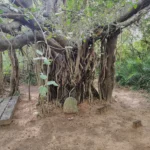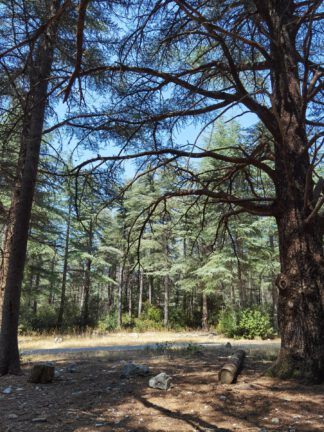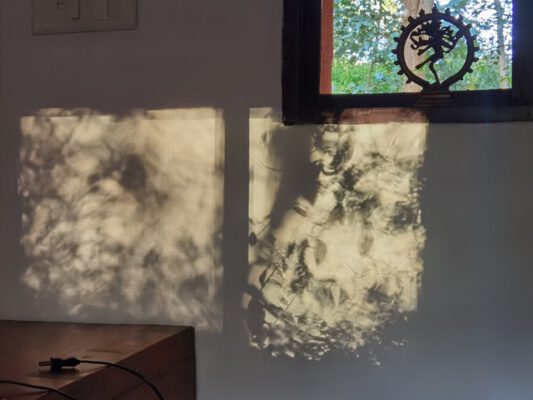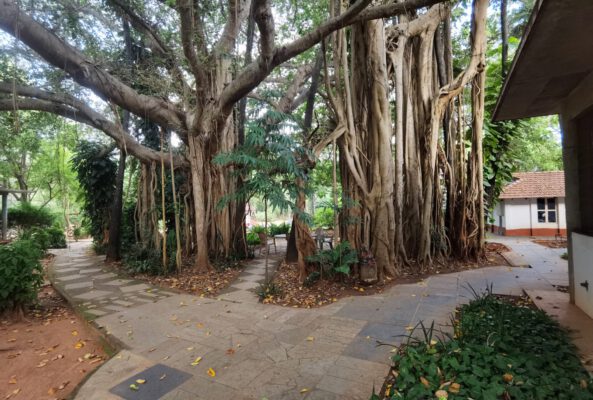Dhe forest is a wonderful habitat. I recently heard a little story about a man who whistled a tune whenever he entered the forest. The animals recognized him after a while and accepted his presence. They no longer ran away and sometimes even greeted him. We usually don't see the forest as it is because we often disturb it. Today I was in the forest. Instead of going for a walk as usual, I meditated a little and then took a short nap on the forest floor. It's dry here, so dry that there are hardly any ants, the ground is soft, the air is clear after the brief rain yesterday. It is cool in the shade, the streaks of light pleasant. The trees do not wander, they are rooted in their being. They are not restless. They grow differently in a collective than when they stand alone. As a collective, they take each other into consideration, give each other space, which can be seen in the canopy, the branches and the distance and in the root kingdom. There is a kind of altruism in the root kingdom. Large trees help small ones to grow, as the small ones do not yet share the light in the crowns. A tree as part of a forest is in communication. Trees seem to communicate with each other through scent messengers. I become calm in the company of trees. Life is possible without running around.
There is something incredibly calming, timeless and connected about sleeping in the forest. In the forest we find rhizomes: similar plants that connect, but also different plants that connect. Gilles Deleuze did not use the rhizome merely as a metaphor for thinking, but thought as part of a rhizome. As a philosopher of immanence, trained by Spinoza, he is an elusive, materialistic, non-reductionist creative mind that I would like to read in India. My suspicion is that his philosophy resonates with the spirituality of India, the Hindu complexity and philosophizing in the forest of the Upanishads.







